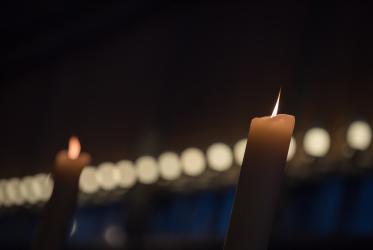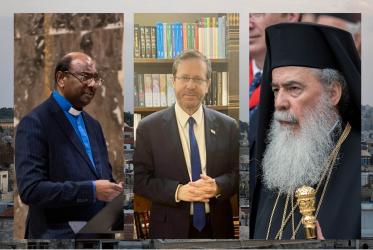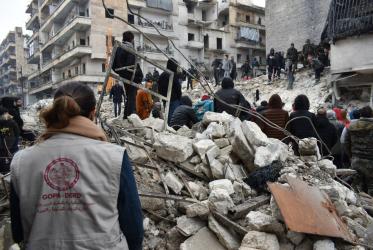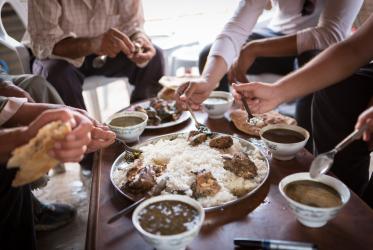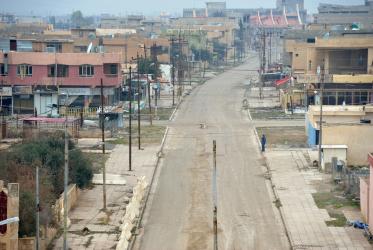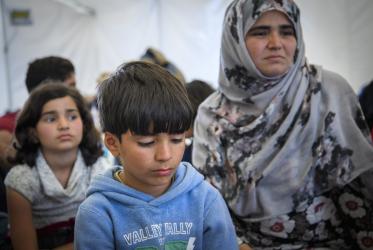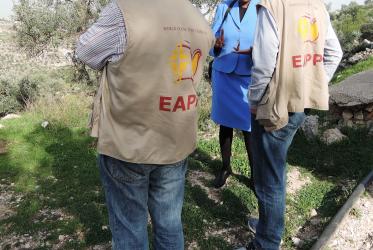Displaying 1 - 19 of 19
03 April 2024
Words of steadfastness ring from the rubble
21 March 2024
WCC calls for immediate end to brutal violence in Gaza
30 December 2023
Dr Saïd Ailabouni: God is on the side of rejected, oppressed, occupied
12 September 2019
Fr Alexi - a peacemaker in Syria
21 December 2018
In Lebanon, refugees face hardship - but find hope
16 March 2017
Local and global work saves lives
22 October 2015
A presence to accompany vulnerable communities
31 March 2015


